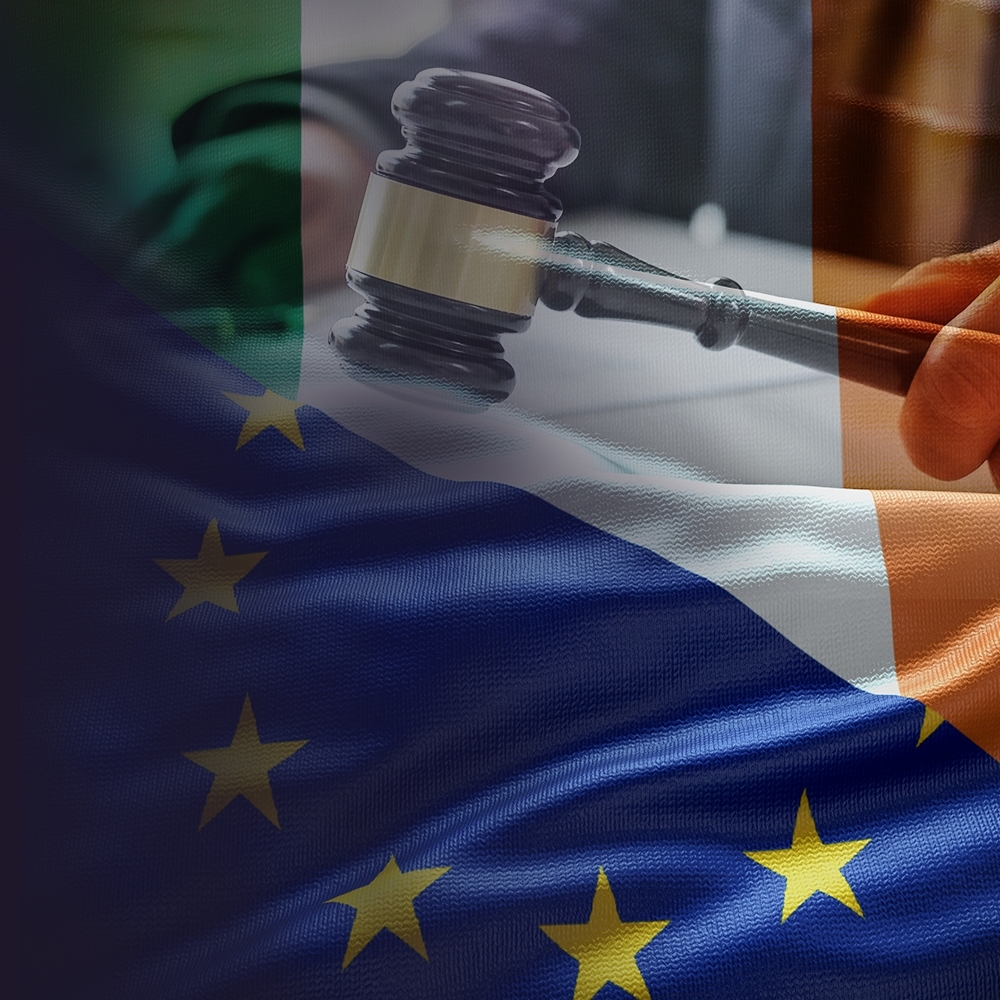How to file a trade mark
The trade mark filing process can be relatively straightforward. In theory, all an applicant needs to do is access the relevant trade mark website, enter the word they wish to create a mark for, add the relevant goods and services to apply to the mark and pay the fee.
However, it can be this simplicity which causes people problems because it is often too easy to register marks without any help or guidance from a professional trade mark attorney. This often means the mark is not as good as it could be either to cover the relevant goods or services, or to ensure there is less likelihood for infringement. The ease of filing a trade mark can directly contribute to the number of people looking for help from an attorney, usually when there is an issue with the mark in future based on problems that could have been avoided at the outset.
Thank you
Once a trade mark is filed, it is officially published as a means of notifying potential earlier rights holders of its existence. This means that any party who wishes to, can see new applications that have been filed. Large businesses with huge value in their trade marks continually monitor new applications within their fields and act quickly against anyone that files a potentially infringing mark. Systems exist to analyse newly filed trade marks and so it is quite likely that you will feature on a monitoring report of an earlier trade mark right holder.
Within the filing process, there can be an inherent fear for unqualified people over what they cannot find versus what they can when searching for trade marks. There is a huge amount of information related to trade marks and without skills, training and expertise, it is very easy to fall foul of the details which could lead to an infringement dispute. This is where the guidance of a trade mark attorney becomes invaluable.
At Keltie, we want to be involved as early in your branding process as possible. Think of us as co-creators, helping and guiding you with brand formation. Involving an attorney earlier in the process limits the likelihood of a trade mark being incorrect insofar as it either does not cover your product adequately, or infringes another trade mark owner’s rights.
We can limit the potential negative implications on your business or perhaps avoid the expense of legal proceedings, by getting your trade mark right from the outset whilst providing a strategy that compliments a desired business plan. Trade marks can be developed so quickly, that people often begin to use them before they are registered, thinking that securing a domain name or social media account handle is part of the same process when that really isn’t the case.
However, all that creativity and development work could be worthless if another party has already secured a registered trade mark for the same name. It is rare that businesses secure all the elements of their brand and marketing portfolio and pick up a matching trade mark later, with many having to begin the process again. To get the best protection for the investment in your new brand or innovation, across all types of platforms, contact Keltie’s expert trade marks team.
Services you may be interested in
Decades of experience as attorneys, engineers and scientists in industry and research underpin the approach of our patent team. We are resolutely commercial and take time to understand your technology and your business.
Keltie’s patent attorneys are skilled not only in patent searching, but in interpreting the output of a patent search, and in helping you understand what it means for your technology and your business.
Why file a patent application? Patents can serve multiple purposes during their lifetime. They grant the owner a period to enjoy the exclusivity of their invention before others can use it. They give the owner powerful rights recognised in law to prevent infringement. But they are also valuable intellectual property which can enhance the ability of the owner to exploit their technology commercially through licensing or sale of the invention.
A key reason to invest in patent protection is to prevent others from copying your innovation. The patent system is intended to allow you, as a creator, to enjoy exclusivity around your technology for a set period of time. Patents allow you to leverage that exclusivity in order to develop your commercial position.
What is the Patent Box? Patent Box is a tax incentive scheme designed to encourage innovation within the UK. Introduced in 2013, it is a government-backed initiative whereby company profits which are derivable from patented technology are taxed at a lower rate than standard corporation tax. The system is intended to provide a strong and supportive environment for innovation within the UK.
The attorneys in our Trade Mark Group are among the leading brand protection experts in the UK and Europe. Through our associate network, we coordinate brand protection all over the world. The Group comprises multi-lingual European and UK trade mark attorneys with backgrounds in law, engineering and business. Their expertise extends through the full lifecycle, from searching and filing through to opposition and litigation, including enforcement and appeal. The Group also has vast experience in online enforcement.
Before you start using a trade mark, it is good practice to conduct a search to check that the trade mark is free to use. Conducting this type of search can be challenging because there are so many trade marks in use across many different fields of commerce. This makes it difficult for people without trade mark qualifications to navigate other brand-owners’ rights, and avoid or manage potential conflict.
How to file a trade mark The trade mark filing process can be relatively straightforward. In theory, all an applicant needs to do is access the relevant trade mark website, enter the word they wish to create a mark for, add the relevant goods and services to apply to the mark and pay the fee.
What is trade mark protection? Trade mark protection is a means of securing a monopoly right in a word, logo, shape, colour or sound that acts as an identifier of origin, allowing consumers to immediately determine the source of the goods or services offered under that particular trade mark or brand.
Your trade mark can represent years of investment, reputation-building and customer trust. Whether you're an established brand maintaining hard-won recognition or a growing business building your reputation in new markets, your mark is central to your identity and commercial value. Obtaining trade mark registration alone provides a foundation—but not full protection. Every day, new applications are filed that could conflict with your rights, weaken your brand's distinctiveness, dilute the reputation you're building or confuse your customers. Without active monitoring, these threats can go unnoticed until significant damage is done—undermining the goodwill you've worked to establish and making enforcement far more costly and complex.
Keltie's attorneys have an unusual wealth of expertise and experience in design rights. We help clients protect their designs, exploit their rights and mitigate risks.
If you are launching a new product there is a risk that it will infringe third party design rights. You can reduce the likelihood of costly conflict down the line, or at least be better informed of potential risk, by conducting a design search and clearance assessment before product launch. To do this, we search for relevant earlier rights - both registered and unregistered designs - help you assess the risk these pose to you, and guide you in any action that you might take to reduce and mitigate risk.
To protect your design with a registered right, a formal application must be made to the appropriate IP office. Obtaining a design registration is relatively quick (a matter of weeks or months in the EU and UK), which can be very useful for creators because it means rights and therefore protection can be granted swiftly.
As the owner of a design right, you are able to take action against another party if they market a product that is too visually similar to yours, without your permission. If their product is identical to your design, or if it differs in some ways but the impression the consumer takes from their product matches your design, you may be able to take action.
What is online brand protection? Protecting the value of your brand online is a lot to do with reputation management. In the age of the internet and social media, brands are global, accessible and more easy to engage with than ever before. Online brand protection services from Keltie seek to protect the credibility and equity you have built within your business and include our enforcement, monitoring and detection capabilities.
What is online brand monitoring? Monitoring involves the process of observing and tracking uses of your brand online. It is a key aspect of your business’ operations to both understand your customers’ sentiment towards the brand and uncover any instances where your intellectual property rights have been infringed.
A domain name provides a platform for visibility of a brand in an online space. It is a destination address for the web traffic generated around a brand name. However, simply put, a domain is a word, and a word can be trade marked. Often, people secure a domain name first in their process of creating a new product or service. Whilst an online presence is a key part of launching a new brand, it is a mistake to think that because you own a domain name, you will be able to secure a matching trade mark. The process should work the other way around - where a domain name becomes an additional asset secured following the clearance and registration of a trade mark.
The attorneys at Keltie join forces with Customs Authorities, Border Forces and Online Enforcement Agencies to tackle infringement and counterfeiting head-on. Counterfeit goods pose a significant threat to the reputation of brands and unsuspecting consumers through a wide range of sectors.
People who work in this area
Jason has over 10 years’ experience in the IP profession. He regularly advises clients on the ownership, registration, enforceability and exploitation of IP rights.
Ben's practice focuses on securing and enforcing trade mark rights in the UK and globally for many well-known clients in sectors ranging from insurance and alcoholic beverages to entertainment and retail. He has particular experience in managing worldwide searching programmes to clear trade marks for use and registration, as well as managing due diligence exercises in support of mergers and acquisitions.
Having started her career in 1986 with an established trade mark and patent attorney firm, Rosemary joined David Keltie in founding David Keltie Associates, now Keltie in 1988, becoming a partner in 1994. She is a Chartered Trade Mark Attorney and Member of the Chartered Institute of Trade Mark Attorneys.
Sean deals with all forms of intellectual property but spends most of his time on patents and designs. His patent practice extends over a huge range of technologies, from catalysts to computers. He is also involved with designs ranging from textiles to logos.
Alistair joined Keltie in 1997, following two years with a Glasgow-based patent and trade mark firm. Having qualified in 1998 to become a Chartered Trade Mark Attorney, European Trade Mark Attorney and Member of the Chartered Institute of Trade Mark Attorneys, he has been a partner in the firm since 2003. Based in the firm’s London office, Alistair is co-head of Keltie's trade mark practice, specialising in trade mark, design and copyright law.
Catherine is a qualified Irish and European Trade Mark Attorney, having obtained her qualification in 2021. She was honoured with the Gearoid O’Sullivan Award by the Irish Association of Patent and Trade Mark Attorneys (APTMA) for achieving the highest marks in the 2021 Trade Mark and Design Examination.
Manuela's substantial trade mark practice ranges from clearance searches and prosecution, due diligence projects, oppositions and other contentious matters, negotiations and IP focussed contracts. She manages a significant number of worldwide trade mark portfolios being responsible for their overall strategy. Her client base and experience cover a broad spectrum of industries, but in particular, sports, pharmaceuticals and fashion.
After graduating with an honours degree in BBL Business and Law from University College Dublin in 2013, Tasneem tried her hand in advertising and marketing agencies before finding her niche in the IP profession. She joined one of Ireland’s leading specialist IP firms, where she qualified as an Irish and European Trade Mark and Design Attorney in 2017.
Eleni deals with due diligence, filing and prosecution of trade mark applications around the world. She is also involved in copyright, design and company name matters. She has experience in clearance searching and preparing trade mark filing strategies, in addition to advising on registrability, infringement, passing off and the validity of trade marks. Eleni deals with contentious matters including filing and defending opposition, invalidation and revocation actions. She has experience in brand protection over a range of industries, particularly, luxury goods, gaming, retail, fashion, oil, automotive, food and drink sectors. Eleni is also a regular contributor to the CITMA Review.
Aisling joined Keltie in 2018. Aisling is a member of the Trade Marks Team based in our Dublin Office. Aisling assists both the Irish and UK Trade Mark Attorneys in managing an extensive range of Irish, UK, European and International Trade Mark and Design portfolios. Aisling has wide-ranging experience in both the pre-registration and post-registration stages of the Trade Mark lifecycle, having previously worked in both the Trade Mark Records and Renewals teams.
In her role as a Trade Mark Assistant, Amber works closely with the firm’s experienced trade mark attorneys, providing support and contributing to the management of trade mark portfolios for a diverse range of clients.
Charlotte joined Keltie in 2008, after graduating from the University of Birmingham with a law degree, qualifying as a Chartered Trade Mark Attorney in 2013 and obtaining the IP Litigation Certificate in 2016. After spending 12 years at Keltie, Charlotte spent four years developing and heading up trade mark practices at London law firms. Charlotte re-joined Keltie in 2023 as Partner of the trade mark practice.
Sectors we work in
No matter what your product, aesthetics are invaluable. They are the first impression of a product: the contours, shapes, colours and textures that catch our eye as we see, use and interact with it. Not only does a distinct aesthetic have its own value, but it can enhance function, reinforce brand recognition and loyalty, and drive consumer choice.
Keltie’s specialist AI and Quantum Technologies team is one of the largest in the UK. We are the heavy hitters: Neural Networks, Game Theory, hidden Markov models, Long Short-Term Memory networks, post-quantum cryptography - nothing phases us.
Branding has a key role to play in any industry. Brands are the flags that fly on behalf of a business or product. They are an identifier of origin that allows consumers to recognise where their products or services are coming from, so it is crucial that those brands resonate with consumers. They must also be kept free of problems that inhibit their ability to be the vehicle that drives a business.
Whether it is the development of novel materials and compounds, or the improvement of industrial processes to make them cleaner or more productive, chemical sciences underpin many of the aspects which are key to addressing the challenges of the 21st century. The diversity of innovation in chemistry is vast, with industry-leading companies combining resources and skills to create new products designed to solve problems and enhance our understanding.
Engineering inventions can be found in hugely complex products, or deceptively simple creations. They can encompass almost any field of technology, and often several fields at once.
More so than almost all other scientific fields, our knowledge, understanding and expertise in biology has increased at a phenomenal pace over the past few decades. Since the high throughput sequencing power used in the human genome project was unleashed at the beginning of the 21st century, multiple '-omics' disciplines now characterise a diverse field that offers such enormous potential for medicine, food production, wellbeing and human expression.
Modern technologies and advancements in product design and manufacturing contribute to our being able to lead a more sustainable and improved lifestyle. These in turn are increasing both the expectancy and quality of life we are able to enjoy as consumers by combatting health challenges and diseases, improving diagnostics and developing new therapies.
Materials science and the technologies involved in manufacturing processes underpin almost every element of technological development. The function, quality, longevity and financial value of products are all impacted by their material make up and the mechanisms involved in their production.
Precision medicine, also referred to as personalised or stratified medicine, is an emerging approach for disease treatment and prevention in which medical decisions, treatments and products are tailored to a subgroup of patients by taking into account the individual characteristics of each patient.
There are few greater challenges than starting a company from scratch but the rewards for taking a great idea or innovation and turning it into a successful business are substantial. At their inception, new companies grow quickly, driven by the dedication of owners and their will to make them profitable, but usually with limited financial resources. In order to become established and find a strong position within the market, startups need to attract external investment.
Sustainability or Green Technology is a hugely prominent sector as public consciousness, awareness and engagement with the ‘green agenda’ grows. As consumers, our behaviour can have a significant environmental impact and has prompted substantial strategic and financial support from national governments and the UN as they look to industry to develop sustainable solutions, products and technologies.
The rise of the internet and modern telecommunications has been underpinned by our ability to program computers to carry out complex operations. Almost every aspect of our lives has been advanced by developments in technology and software, making previously slow or complicated processes easier, faster and in some cases, cheaper.
Related knowledge
Insights into the automotive sector with Joanne Hopley
Philip Baker - the future of IP in personalised transport.
Patents and the birth of materials informatics
Patenting ethical, environmental or socially responsible technologies
It Ain't What You Do (It's the Way That You Do It)
The Role of Carbon Capture in Achieving Net-Zero Emissions
Size Matters – The Rise of Fake Graphene
Everyday Inventions in Lifestyle and Wellness
An interview with Joanne Hopley, Partner at Keltie
An interview with Sullivan Fountain, Partner at Keltie
An interview with Alistair Gay, Partner at Keltie
An interview with Colin Paterson, Partner at Keltie
An interview with Gemma Christie, Keltie’s newest Partner
Patenting trends in circular plastics
Celebrating International Women in Engineering Day with Molly Yau

10.08.2022
Protecting NFTs and cryptofinance services as trade marksThe EUIPO recently published new guidance on the classification of trade mark applications for non-fungible tokens (NFTs). This guidance is helpful as we are seeing many filings in this area; however, further clarification may be needed.

12.03.2024
Ireland and the Unified Patent CourtDespite being an enthusiastic participant in the European Union, Ireland has sat on the sidelines of the EU’s Unified Patent Court (‘UPC’) project so far. But not for much longer – the Irish Government has announced that the necessary constitutional referendum will be held in June 2024 and that Ireland’s ratification of the UPC Agreement will be fast-tracked if the referendum passes.

11.01.2023
What is a trade mark?Trade marks can apply to words, logos, colours, shapes, drawings, even sounds and smells. They are a badge of origin that allows a customer to see a brand or product, recognise it and know how they can repeat that transaction again.

02.05.2026 - 06.05.2026
2026 INTA Annual MeetingThe INTA Annual Meeting is coming to London on 2 May 2026. London is Europe’s powerhouse of innovation, finance, and legal excellence. We look forward to welcoming over 10,000 people, including IP professionals, business leaders, policymakers, and solution providers from more than 100 jurisdictions to London.
Thank you